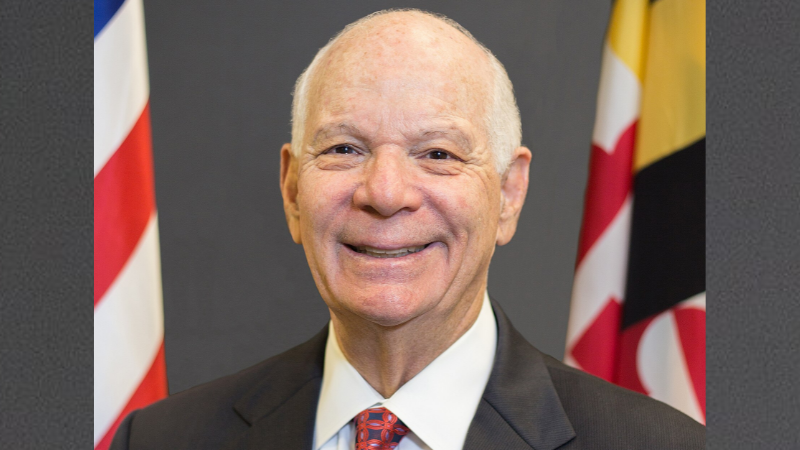Ben Cardin | Ben Cardin wikipedia
Ben Cardin | Ben Cardin wikipedia
WASHINGTON – U.S. Senators Ben Cardin (D-Md.) and Roger Marshall (R-Kan.) have introduced legislation to expand hospital-based violence intervention services and prevention programs for survivors of violent crimes. The Bipartisan Solution to Cyclical Violence Act will help establish and expand such programs nationwide and ensure health and trauma professionals are delivering the care that survivors need in the aftermath of violence. Congressman Dutch Ruppersberger (D-Md.-2) will be introducing the legislation in the House of Representatives.
Crime costs taxpayers an estimated $2 trllion, including expenses related to police, jails, medical treatment for victims of violent crimes, and lost wages to both victims and perpetrators. Violence intervention or prevention programs provide services for victims of violent crime while they are recovering from their injuries. These services give survivors tools to make lifestyle changes that can prevent them from being re-victimized or reduce their likelihood of being involved in future violence.
“Violence intervention programs work. We can break the cycle of violence so that recovering victims of violent crimes do not become victims again,” said Senator Cardin. “Expanding federal investment in intervention and prevention will make a lasting difference in Baltimore City and other localities across the state and the country by reducing violent crime, recidivism, hospitalizations and making our communities safer.”
“As the son of a police chief and as a physician working in a full-service hospital, I can attest to the issue of violence on the streets leading to the operating room,” said Senator Marshall. “Law enforcement and hospitals see two sides of the same coin of trauma and injuries due to crime across the country. I believe our bipartisan, bicameral legislation can be part of the solution in decreasing re-hospitalization as a result of crime through early intervention and interdisciplinary coordination not just in health care, but also with social services and law enforcement personnel. I’m honored to work with Senator Cardin in advancing the bill through the Senate HELP Committee.”
“I first authored this bill in 2019 after learning about highly-successful intervention programs at Maryland-based hospitals, where as much as 20 percent of patients are victims of violence and many are repeat customers,” said Congressman Ruppersberger. “This bill helps survivors regain their footing, so they do not become repeat victims, or even perpetrators themselves. It saves tax dollars and shifts social work away from law enforcement and back to the experts in mental health, substance abuse, homelessness, unemployment and other areas that often afflict victims of violent crime. I am proud that this bill has twice passed the House and I am confident, with bipartisan backing in the Senate, we can get it across the finish line and expand intervention programs around the country.”
This bipartisan bill establishes a federal grant program under the U.S. Department of Health and Human Services to create or expand hospital-based violence intervention or prevention programs and study the impacts of these programs on re-incarceration and hospital re-admittance rates to determine best practices. The Secretary would award grants at a level of $250,000 to $500,000 per grantee, over a three-year period, for a total of $10 million.
The Bipartisan Solution to Cyclical Violence Act is supported by the Fraternal Order of Police, National Association for the Advancement of Colored People, American College of Surgeons, Society of Trauma Nurses, National Association of School Resource Officers, National League of Cities, Health Alliance for Violence Intervention (HAVI), National District Attorneys Association, Cure Violence, American Hospital Association, American College of Emergency Physicians and the Community Justice Action Fund.
The legislation passed the House of Representatives in 2021.
“Surgeons see first-hand the effect that cyclical violence has on our patients and our communities. The American College of Surgeons has worked extensively to advance a comprehensive and multi-disciplinary approach to reduce the risk factors associated with violent injury. Hospital-based Violence Intervention Programs are an essential tool in reducing violence recidivism and I applaud Senators Cardin and Marshall for introducing the Bipartisan Solution to Cyclical Violence Act of 2023 to establish and expand these important programs throughout the country,” said Jeffrey D. Kerby, MD, PhD, FACS, Chair, ACS Committee on Trauma.
“The HAVI applauds the introduction of this important legislation, which will provide much-needed funding to trauma centers to expand and research hospital-based violence intervention programs,” said Fatimah Loren Dreier, Executive Director of the Health Alliance for Violence Intervention (the HAVI), a national organization that fosters a network of hospital-based violence intervention programs (HVIPs). “HVIPs help to break the cycle of community violence by providing wraparound services to violently injured patients while they’re recovering from their injuries. They are a key component of a comprehensive community violence intervention ecosystem, which cities deploy to address violence in their hardest hit communities.”
Original source can be found here





 Alerts Sign-up
Alerts Sign-up